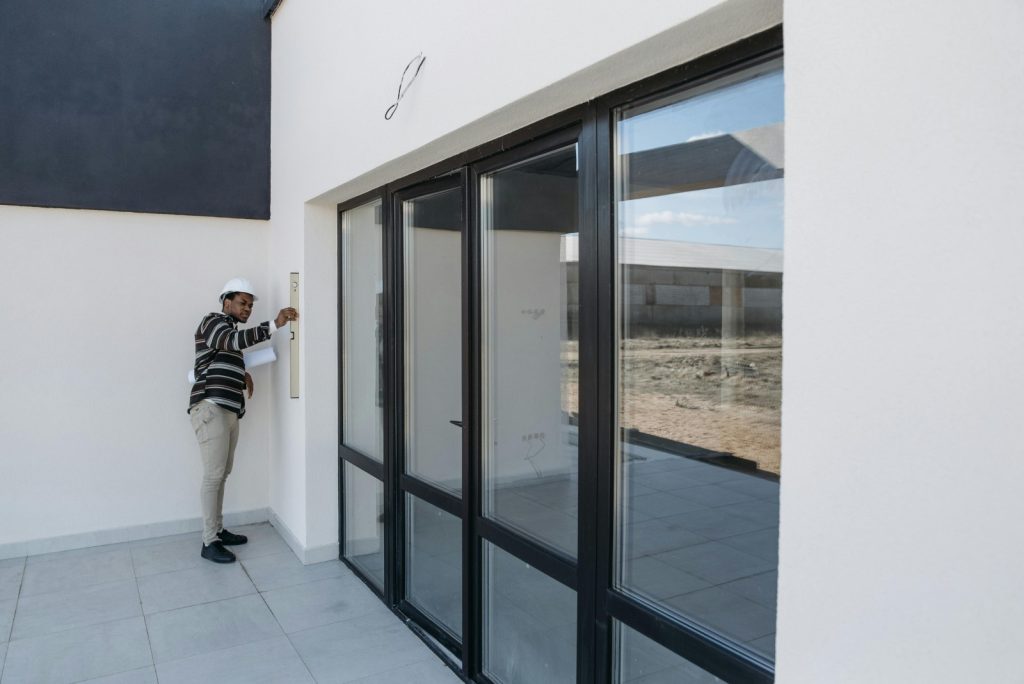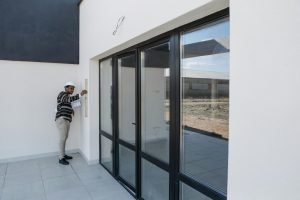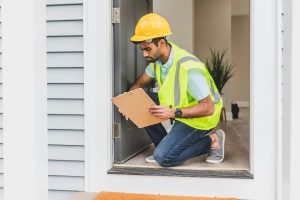Investing in property is one of the most significant financial decisions you’ll ever make, and ensuring it’s a sound investment starts with a thorough inspection. Private building inspectors in Adelaide act as your trusted allies, uncovering hidden issues that could impact the safety, value, and longevity of your property.
From structural defects and pest infestations to water damage and non-compliance with building codes, their findings can save you from costly repairs and future headaches. By identifying potential red flags early, these inspections empower you to negotiate better deals, plan for necessary repairs, and make confident decisions about your investment.
In this blog, we’ll explore the most common issues uncovered during building inspections in Adelaide, why they matter, and how they can shape your property purchase journey.
Common Defects in Construction
Building inspectors classify construction defects into two distinct categories: major structural defects and superficial issues. Major structural defects pose significant risks to the property’s integrity, including:
- Foundation cracks and movement
- Sagging roof structures
- Load-bearing wall deficiencies
- Severe concrete deterioration
Superficial defects, while less critical, can indicate underlying problems:
- Broken or cracked tiles
- Wall and ceiling stains
- Peeling paint
- Uneven flooring
- Gaps in window seals
- Door misalignment
These issues affect both the property’s value and liveability. A cracked tile might seem minor, but it can signal foundation movement or water damage beneath the surface. Similarly, ceiling stains often reveal roof leaks or plumbing problems that require immediate attention.
The cost implications of ignoring construction defects multiply over time. A $500 repair today could prevent a $5,000 renovation next year. Professional building inspectors identify these issues early, enabling buyers to negotiate repairs or adjust their offer price accordingly.
2. Pest Infestations
Pest inspections are a crucial part of thorough building assessments. At One Stop Inspections, we use advanced thermal imaging technology to find hidden pest activity within walls and other structural elements.
Common Pests in Adelaide Properties:
- Subterranean termites
- European house borers
- Wood decay fungi
- Carpenter ants
- Rodents
These unwanted pests can cause serious structural damage that often goes undetected until it’s too late. Termites alone cause millions of dollars in property damage across Adelaide each year.
Signs of Pest Infestation:
- Hollow-sounding timber
- Mud tubes on walls
- Damaged or bubbling paint
- Sagging floors or ceilings
- Frass (insect droppings)
If left undetected, pest infestations can weaken the structure of a property, resulting in:
- Weakened support beams
- Damaged wall frames
- Compromised roof structures
- Foundation issues
- Electrical system damage
3. Water Damage Concerns
Water damage is one of the most significant issues that private building inspectors find in properties in Adelaide. Building inspectors regularly look for signs of water problems, such as:
- Visible Stains: Brown or yellow discolouration on walls and ceilings
- Paint Deterioration: Bubbling, peeling, or flaking paint surfaces
- Mould Growth: Black or green spots in damp areas
- Structural Warping: Swollen skirting boards or door frames
Common Causes of Water Damage
Some common sources of water damage include:
- Faulty plumbing systems
- Damaged roof tiles or guttering
- Inadequate waterproofing in wet areas
- Poor drainage around the property
Repairs That May Be Needed
Repairs often require professional help, such as:
- Installation of new waterproof membranes in bathrooms
- Replacement of compromised roof sections
- Upgrade of drainage systems
- Fixing plumbing issues
Consequences of Untreated Water Damage
If water damage is not addressed, it can lead to serious problems such as:
- Weakened structural integrity
- Health risks from mould exposure
- Electrical system hazards
- Decreased property value
- Compromised insulation effectiveness
These inspectors use moisture meters and thermal imaging to detect hidden water issues, ensuring comprehensive assessment of potential water-related problems.
4. Compliance with Local Building Codes and Regulations
Building inspectors in Adelaide play a crucial role in safeguarding property investments through strict adherence to local building codes and regulations. These standards exist to protect both property owners and occupants.
Key Compliance Areas:
- Structural integrity requirements
- Fire safety measures
- Electrical system specifications
- Plumbing installations
- Energy efficiency standards
Our inspectors conduct thorough assessments using specialised tools and methods to verify compliance:
- Physical measurements of structural elements
- Review of building documentation
- Assessment of materials used
- Verification of proper installation methods
- Cross-referencing with current building codes
Non-compliance Consequences:
- Substantial fines from local authorities
- Mandatory rectification works
- Increased insurance premiums
- Difficulty selling the property
- Potential legal liabilities
- Reduced property value
Building code violations can lead to significant financial burdens. A single non-compliant element might cost thousands to rectify, making professional inspection services invaluable during property transactions.
5. Identifying Safety Hazards During Inspections
Private building inspectors routinely identify critical safety hazards that require immediate attention. These hazards can pose serious risks to occupants’ wellbeing and property integrity.
Common Safety Concerns:
- Faulty electrical wiring and exposed cables
- Inadequate smoke detector placement
- Missing or damaged safety switches
- Unstable balustrades and handrails
- Asbestos-containing materials
Ventilation Issues:
- Mould growth in poorly ventilated spaces
- Carbon monoxide risks from faulty heating systems
- Inadequate bathroom exhaust systems
Structural Safety Red Flags:
- Cracks in load-bearing walls
- Sagging roof structures
- Foundation movement signs
- Compromised support beams
Professional building inspectors use specialised equipment to detect hidden dangers, including thermal imaging cameras for electrical hotspots and moisture meters for dampness assessment. Each identified hazard is photographed, documented, and rated according to its severity level. This systematic approach ensures property buyers understand the full scope of necessary safety improvements before finalising their purchase.
6. Maintenance Issues Highlighted by Inspectors
Private building inspectors in Adelaide regularly identify maintenance concerns that require attention. These issues range from minor cosmetic problems to potential structural concerns:
- Deteriorating Sealants and Caulking: Inspectors pay close attention to areas where sealants and caulking are used, such as bathroom and kitchen joints, window frames, and external door seals. Any signs of deterioration in these areas can lead to water leaks and damage if not addressed promptly.
- Surface Maintenance Requirements: Peeling paint on exterior walls, loose or missing roof tiles, and cracked or damaged rendering are all surface maintenance issues that inspectors look for. These problems not only affect the aesthetics of the property but can also lead to further deterioration if left unattended.
- Basic Repair Needs: Inspectors also check for basic repair needs such as loose door handles and hinges, squeaky floorboards, and dripping taps or leaky faucets. While these may seem like minor issues, they can impact the overall functionality and comfort of the home.
Simple maintenance solutions can prevent these issues from escalating into major problems. Re-grouting tiles, replacing worn weather stripping, and addressing minor plumbing leaks are cost-effective fixes that protect property value.
7. Thorough Reporting Process After Inspections
A professional building inspection report is an essential tool for property buyers when making decisions. These reports follow a structured format that includes:
- Property Details: Address, inspection date, weather conditions
- Inspection Scope: Areas accessed and limitations encountered
- Defect Classifications: Major structural issues vs cosmetic concerns
- Room-by-Room Analysis: Detailed observations for each space
- External Assessment: Roof, walls, drainage systems
High-quality inspection reports include detailed photographs that capture both existing problems and potential areas of concern. These visual records serve as:
- Clear documentation of defects
- Time-stamped evidence of property condition
- Reference points for future repairs
The comprehensive nature of these reports empowers buyers to:
- Negotiate purchase prices based on documented issues
- Plan necessary repairs and renovations
- Budget accurately for immediate and future maintenance
- Understand the true condition of their investment
8. Legal Considerations Post Inspection
Building inspection reports carry significant legal weight in property transactions. Legal actions against building inspectors typically arise from claims of negligence or breach of duty of care. Under Australian tort law, inspectors must demonstrate reasonable skill and diligence during their assessments.
Key Legal Obligations:
- Accurate documentation of visible defects
- Clear communication of inspection limitations
- Professional adherence to industry standards
- Proper disclosure of potential risks
Building inspectors operate within defined professional boundaries. They cannot:
- Predict future defects
- Access areas beyond reasonable reach
- Guarantee absolute property condition
- Move furniture or personal belongings
A comprehensive inspection helps protect both parties:
- Buyers receive documented evidence of property condition
- Inspectors maintain detailed records of their findings
- Reports serve as legal documentation in disputes
- Professional indemnity insurance covers valid claims
Professional building inspectors minimise legal risks through:
- Standardised inspection procedures
- Regular industry training
- Clear scope definition
- Proper documentation practices
Comprehensive Building Inspections for Adelaide
For property buyers in Adelaide, a private building inspection is crucial. One Stop Inspections offers thorough assessments to identify potential issues before they become costly problems. Our commitment to detailed inspections, same-day reports, and expert analysis empowers buyers to make well-informed decisions. With experienced, licensed inspectors, we provide peace of mind and professional guidance throughout your property journey. Trust Adelaide’s leading building inspection specialists to protect your investment and ensure your future home is secure. Schedule your inspection with One Stop Inspections today for reliable, comprehensive service.




